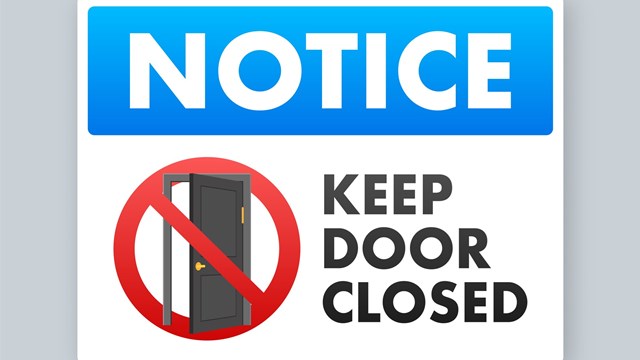Whether one resides in a Hoboken high-rise or in a more spread-out HOA, security—for both property and physical safety—is an important issue. Who can come in, at what times, how long they can stay, and how freely they can move about the property is of concern to any conscientious board/management team.
In order to maintain a safe and secure building or association, administrators must draft and enforce clear rules regarding non-resident visitors and guests—while, at the same time, not overreaching and overregulating how unit owners conduct themselves in their own homes.
Here are some of the biggest issues board members face when dealing with guests policies in condos, co-ops and HOA communities.
Guests, Subletters, and Roommates
“In certain New Jersey buildings, you may be involved in vertical living arrangements,” says Phyllis Weisberg, a partner with the New York-based law firm of Montgomery McCracken Walker & Rhoads, LLP, which has offices in Cherry Hill and Linwood. “You have a lot of people living in a building. Who’s sharing your halls? Who’s riding on your elevators? Is it somebody who’s been vetted in any fashion, and that you’re comfortable with?”
“Community association boards have to wrestle with the issue of visitors and guests in their community and this can be a very sensitive issue,” says Chuck Graziano, CPM, PCAM and North Jersey regional director for Associa’s Mid-Atlantic with offices throughout New Jersey. “On one hand, it is difficult to restrict a homeowner from having guests or visitors, and on the other hand, the board has an inherent desire to protect the safety and security of their community.”
In theory, all it takes is one resident to hit the buzzer and admit a presumed pizza-delivery guy, and suddenly a series of burglaries occurs. Thus, boards are strict on guest policies. They aren’t presuming a resident’s college buddy will steal from the apartment down the hall, but that buddy doesn’t have as much of a vested interest in keeping the building secure.
“Owners care about the building a lot more than people who are in there for a week, or two weeks, or whatever it is,” Weisberg says. “The short term occupants or guests aren’t going to care if they’re blasting music during a party, because they’re not going to be around. They’re not going to care if they walk their dog and the dog soils the hallway. They don’t have the same stake in the community. And therefore, in general, they just present problems. Will they abide by the rules that are important for quality of life?”
Guests very well may. Subletters may not. Illegal subletters have even less incentive to abide by the rules. This is not to say that all guests and subletters will trash the joint, but the only that people who have real incentive to adhere to the rules are the owners of the co-op or the condo unit.
Co-op bylaws are often written with this in mind, to encourage owner occupancy. “Most co-op documents have provisions that allow for guests of shareholders to stay for up to one month, provided that the shareholder is also occupying the apartment,” explains Mindy H. Stern, a partner with the law firm of Schoeman, Updike, Kaufman, Stern, LLP, who represents clients throughout New Jersey. “So the first sort of policy leave-in for that typical clause is that people do not want a ‘guest’ to actually be an illegal sublet for which there’s no approval.”
In general, associations and HOAs consider a guest as someone who is there at the same time as the owner. “There’s an assumption that if the owner or shareholder is there with the guest, there will be better control,” says Stern. “The owners and shareholders know the rules and regulations. Where they’re supposed to throw out their garbage, and whether they’re allowed to have kids playing in the hallway or not… all the quality-of-life things that residents are concerned about.”
Of course, guest policies don’t necessarily interfere with households involving roommates. With the high cost of living in areas of New Jersey, if all co-ops and condos prohibited the presence of roommates, such rules could drastically affect the real estate community and affordability of certain communities.
Legalese
Rules and regulations concerning guests, as one might suspect, are more controlled in a co-op than in a condo community. Co-ops regard the rights of the community as a whole superior to the rights of the individual. Condos have rules, of course, but tend to have fewer teeth as owning a condominium is more or less like owning a house in a shared community or building.
“There should always be a rule in place that makes the unit owner responsible for the actions of their visitors and guests…and renters in the case of a rented unit,” says Graziano. “This may already be included in the community’s governing documents; however, one of the most important elements of this provision is that it be publicized regularly.”
Weisberg notes there is some logic to what is often a zero tolerance policy. “A lot of buildings are very strict, even if guests are well-behaved,” she continues. “Once you let one person break the rules, there’s a concern that it’s going to be a free-for-all.”
Furthermore, there are other issues beyond the potential adverse impact on quality of life. “Visitors and guests have the potential for exacting a high cost on community facilities,” says Graziano. “When attending a party or other gathering at the community’s meeting room or clubhouse, it’s easy for things to get out of hand. To the visitor, it’s not their home and, to an extent, the homeowner loses sight of the fact that these amenities are an extension of their home.”
What should a resident do if suspicious that the guest in, say, unit 12B is actually an illegal sublet?
“You report it to the managing agency, and they investigate it,” Weisberg says. “People in condos are allowed to lease their apartments, and if a proper lease package was submitted to the board, and the board was given the opportunity to waive its right of first refusal, it may be perfectly legitimate, what’s going on in that apartment.”
Co-ops have more authority to act in these cases than condos. “In a co-op, it would again be the managing agent. In that case, if there’s a lease it would have to be approved by the board. In most co-ops, you can’t sublet your apartment without the board consenting,” she says. “And the board has the right to grant or withhold consent for any reason or no reason.”
Bed & Breakfast & Bylaws
The most insidious new threat to peace and harmony in New Jersey residential buildings, some suggest, is the ease with which modern technology makes subletting an apartment. Online services like Airbnb and VRBO, which facilitate renting vacation properties the world over, have made boards, property managers, and residents re-think their definition of 'guests'.
“Websites like Airbnb are encouraging people to do things that violate the bylaws or, in a co-op, the lease,” says Weisberg. Needless to say, the gains for doing so are obvious. Renting a luxury condo in say, Hoboken, for a week could possibly pay for the apartment for a few months. But there are perils involved that go beyond whether an Airbnb renter ruins the new paint job in the bathroom. “Once strangers are allowed in the building, anything can happen. They’re making it sound like such a nice thing, and it may not be. There are risks involved. Are the people being vetted? This trends to raise a lot of issues.”
Stern agrees. “There’s a lot of controversy about that right now. There’s been a lot of discussion about whether it can be and should be more regulated in condos and co-ops, and that discussion is ongoing,” she says.
“In today’s world, staying alert and conscious of people and actions around us is critical. This doesn’t stop at the entrance to your building,” says Graziano. “As part of a comprehensive program to keep people aware, homeowners should be reminded, on a regular basis, that they are responsible for the actions or damages caused by their guests while in the community or building. Boards should consult with their professional community manager and legal counsel to review the strength of existing or proposed restrictions and proposed plans to publicize them to the community.”
In the meantime, the smart play is to remember the words of Benjamin Franklin: “Guests are like fish. They begin to smell after three days.”
Greg Olear is a freelance writer and a frequent contributor to The New Jersey Cooperator. Freelance writer Christy Smith-Sloman contributed to this article.







Leave a Comment